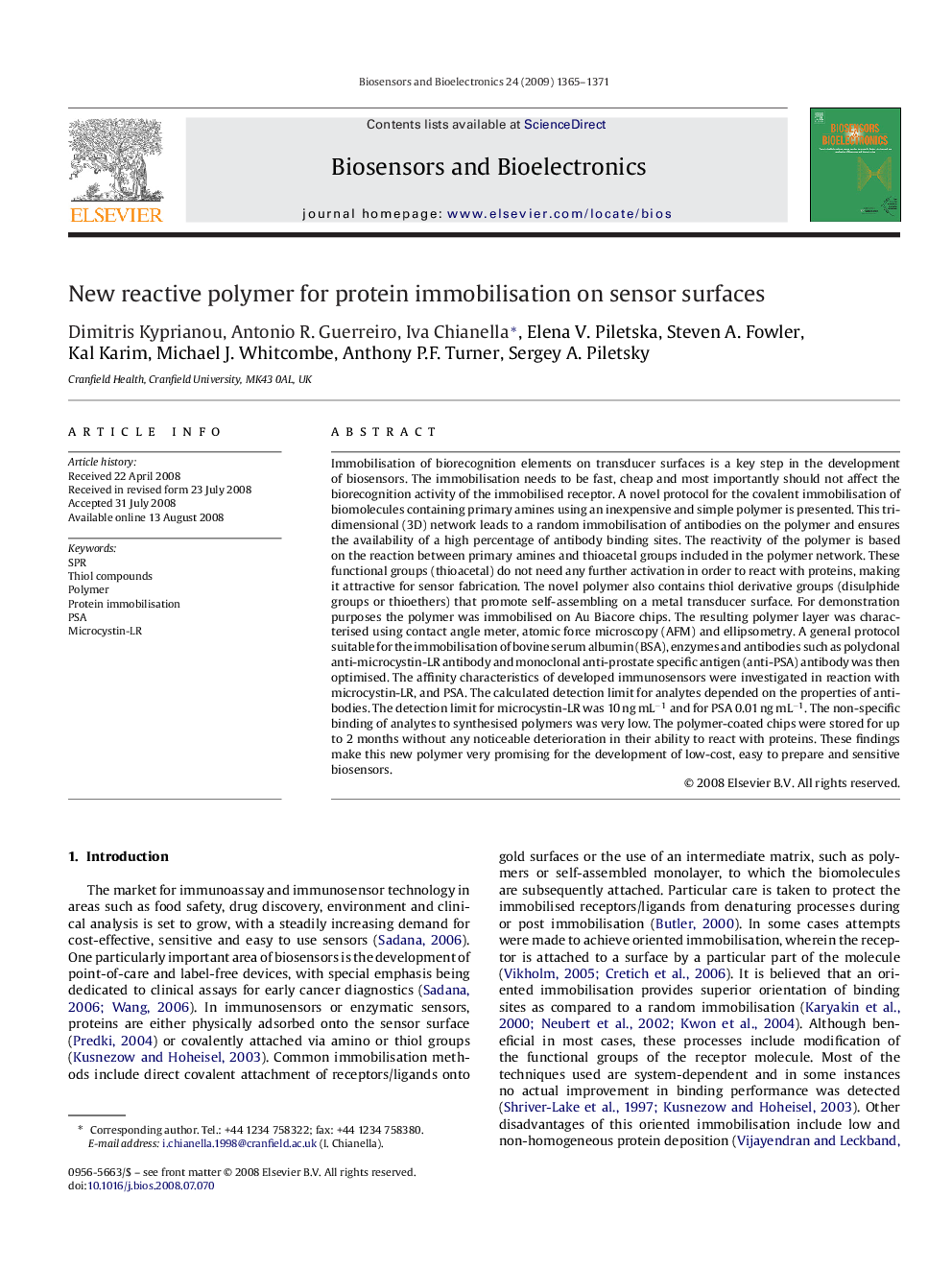| کد مقاله | کد نشریه | سال انتشار | مقاله انگلیسی | نسخه تمام متن |
|---|---|---|---|---|
| 868881 | 909815 | 2009 | 7 صفحه PDF | دانلود رایگان |

Immobilisation of biorecognition elements on transducer surfaces is a key step in the development of biosensors. The immobilisation needs to be fast, cheap and most importantly should not affect the biorecognition activity of the immobilised receptor. A novel protocol for the covalent immobilisation of biomolecules containing primary amines using an inexpensive and simple polymer is presented. This tri-dimensional (3D) network leads to a random immobilisation of antibodies on the polymer and ensures the availability of a high percentage of antibody binding sites. The reactivity of the polymer is based on the reaction between primary amines and thioacetal groups included in the polymer network. These functional groups (thioacetal) do not need any further activation in order to react with proteins, making it attractive for sensor fabrication. The novel polymer also contains thiol derivative groups (disulphide groups or thioethers) that promote self-assembling on a metal transducer surface. For demonstration purposes the polymer was immobilised on Au Biacore chips. The resulting polymer layer was characterised using contact angle meter, atomic force microscopy (AFM) and ellipsometry. A general protocol suitable for the immobilisation of bovine serum albumin (BSA), enzymes and antibodies such as polyclonal anti-microcystin-LR antibody and monoclonal anti-prostate specific antigen (anti-PSA) antibody was then optimised. The affinity characteristics of developed immunosensors were investigated in reaction with microcystin-LR, and PSA. The calculated detection limit for analytes depended on the properties of antibodies. The detection limit for microcystin-LR was 10 ng mL−1 and for PSA 0.01 ng mL−1. The non-specific binding of analytes to synthesised polymers was very low. The polymer-coated chips were stored for up to 2 months without any noticeable deterioration in their ability to react with proteins. These findings make this new polymer very promising for the development of low-cost, easy to prepare and sensitive biosensors.
Journal: Biosensors and Bioelectronics - Volume 24, Issue 5, 1 January 2009, Pages 1365–1371